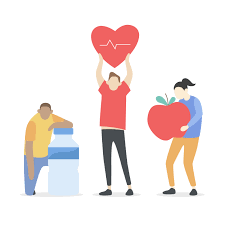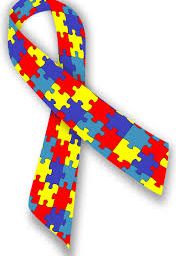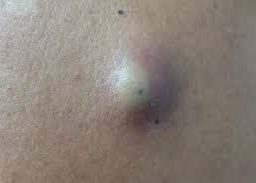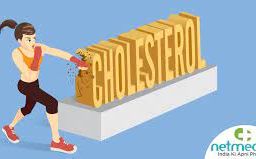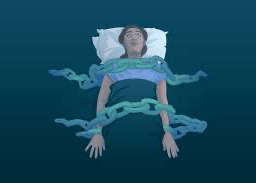
Debunking Common Healthcare Myths: What You Need to Know
In today’s rapidly evolving medical landscape, it’s crucial to separate fact from fiction. This comprehensive guide delves into the most pervasive healthcare myths, shedding light on misconceptions that can influence decisions about treatments, vaccines, and overall well-being.
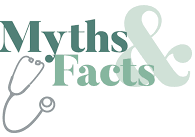
In the age of the internet, misinformation spreads like wildfire, and the world of healthcare is no exception. This post aims to expose and debunk prevalent healthcare myths that can seriously jeopardize your well-being. From misguided beliefs about genetic health conditions to misconceptions about natural remedies, these myths pose a significant threat to patients seeking proper medical care.
Myth 1: Genetic Health Conditions are Inevitable and Unchangeable
Impact: Patients often mistakenly believe that genetic predisposition determines their health fate. This misconception can lead to a lack of awareness about modifiable lifestyle factors that play a crucial role in preventing or managing health conditions.
Correction: While genetic factors do play a role in health conditions, lifestyle choices such as diet, exercise, and stress management can significantly influence health outcomes. It’s important to recognize that a combination of genetics and lifestyle factors contribute to overall health.

Myth 2: Vaccines Cause Autism
Impact: The false link between vaccines and autism has led to vaccine hesitancy, endangering individuals and contributing to preventable disease outbreaks. These healthcare myths have resulted in a decline in vaccination rates, putting public health at risk.
Correction: There is no credible scientific evidence supporting a connection between vaccines and autism. Vaccines are vital for preventing serious diseases and maintaining public health. It is crucial to base decisions on accurate information to safeguard individual and community well-being.
Myth 3: Antibiotics Cure All Illnesses
Impact: Overusing antibiotics can lead to antibiotic resistance, rendering these medications ineffective against bacterial infections in the long run. these healthcare myths may predispose patients to expect antibiotics for viral infections, thus contributing to the global problem of antibiotic-resistant bacterial infections.
Correction: Antibiotics are effective against bacterial infections, not viral infections. Overusing antibiotics can lead to antibiotic resistance, which poses a growing concern. It’s important to use antibiotics only when prescribed by a healthcare professional.
Myth 4: Chronic Pain Excludes the Possibility of Exercise
Impact: Avoiding exercise due to chronic pain can worsen the condition and limit overall quality of life.
Correction: Customized exercise routines designed for individuals with chronic pain can actually help manage pain and improve well-being. Consulting a healthcare provider and working with a physical therapist can guide individuals toward safe and effective exercise routines.

Myth 5: Online Symptom Checkers Provide Reliable Diagnoses
Impact: Relying solely on online symptom checkers are healthcare myths that can lead to misdiagnosis and delayed medical attention.
Correction: Online symptom checkers should not replace a professional medical evaluation. While they may provide general information, accurate diagnoses depend on a comprehensive assessment by a qualified healthcare professional.
Myth 6: Pain Medication is Always the Optimal Solution for Pain Management
Impact: Solely relying on pain medication are healthcare myths that may mask underlying issues and potentially lead to dependency. Comprehensive pain management approaches, including physical therapy and lifestyle changes, offer more sustainable solutions.
Correction: Pain management should involve a multidisciplinary approach, incorporating lifestyle changes, physical therapy, and medication when necessary. It’s important to address the underlying causes of pain rather than relying solely on medication.
Myth 7: Natural Remedies Are Always Safe
Impact: Believing healthcare myths may cause patients to dismiss scientifically proven medical interventions in favor of unproven natural remedies. Relying solely on natural treatments can lead to delayed or inadequate treatment, exacerbating health conditions. Additionally, natural remedies can interact with prescription medications or cause adverse effects.
Correction: Natural remedies can carry risks and potential interactions with other treatments. Evidence-based medical interventions are essential for certain health conditions. Consultation with a healthcare professional is crucial before trying any new treatment or incorporating supplements into your regimen.

Myth 8: Mental Illness Is a Sign of Weakness
Impact: These healthcare myths discourage individuals from seeking help for mental health concerns due to the stigma attached. Patients might suffer in silence, avoiding crucial treatment and support that could significantly improve their well-being. Timely intervention and treatment are crucial for managing mental health conditions effectively.
Correction: Mental illness is a medical condition that requires proper treatment and support. Seeking help for mental health concerns is a sign of strength, and timely intervention can lead to improved mental health outcomes.
Myth 9: Going Gluten-Free Is Healthier for Everyone
Impact: Unless diagnosed with celiac disease or gluten sensitivity, unnecessarily avoiding gluten can result in a nutrient-deficient diet. Balanced eating is key to overall health.
Correction: While a gluten-free diet is necessary for individuals with celiac disease or gluten sensitivity, it is not healthier for everyone. A balanced diet that includes whole grains can provide essential nutrients for overall health.
Myth 10: You Can’t Overdose on Vitamins
Impact: Excessive vitamin supplementation can lead to harmful effects and even toxicity. Following recommended guidelines for vitamin intake is essential.
Correction: It’s important to note that excessive vitamin supplementation can have harmful effects. To ensure safety, it is crucial to follow recommended guidelines and consult a healthcare professional before taking high doses of vitamins.
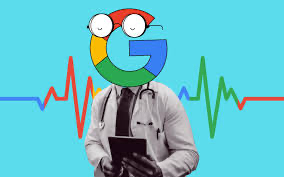
Myth 11: “Dr. Google” Knows Best
Impact: Relying solely on internet research can lead to self-diagnosis and unnecessary anxiety. Patients may fall victim to healthcare myths and misunderstand their symptoms or fail to consult a qualified medical professional, leading to delayed or incorrect treatment.
Correction: While internet research can be helpful, it should complement professional medical advice rather than replace it. Consulting a qualified healthcare provider is important for accurate diagnoses and appropriate treatment based on a thorough evaluation.
Myth 12: Prescription Drugs Are Always the Enemy
Impact: Fearing prescription drugs can lead patients to avoid necessary medications, resulting in uncontrolled chronic conditions and worsening health. It’s crucial to weigh the benefits and risks of medications with a healthcare professional.
Correction: Prescription drugs can be beneficial when used as prescribed by a healthcare professional. It is important to balance the benefits and risks and make informed treatment decisions in consultation with a healthcare professional.
Myth 13: Home Remedies Can Cure Serious Illnesses
Impact: Believing that home remedies or unconventional treatments can cure severe illnesses like cancer or heart disease may lead patients to reject evidence-based medical care, potentially allowing these conditions to progress unchecked.
Correction: Serious illnesses require evidence-based medical interventions. While home remedies may have some benefits for minor ailments, relying solely on them for severe conditions like cancer or heart disease can have detrimental outcomes. Medical care based on scientific evidence is crucial for managing serious illnesses.
Myth 14: Only Severe Symptoms Require Medical Attention
Impact: Believing that only severe symptoms warrant medical attention can lead patients to ignore or downplay early signs of serious conditions. Delayed diagnosis and treatment can lead to complications and worsened outcomes.
Correction: Early detection and treatment of health issues, even with mild symptoms, can prevent complications and improve outcomes. Regular check-ups and prompt medical attention are important for maintaining good health and managing potential issues before they become severe.

Myth 15: Mental Health Issues Are Just a Phase
Impact: Minimizing mental health concerns as a phase or weakness can discourage individuals from seeking help. Untreated mental health issues can lead to a decline in overall well-being and, in severe cases, self-harm or suicide.
Correction: Mental health concerns are legitimate medical conditions that deserve proper treatment and support. Neglecting mental health can have serious consequences on overall well-being. Seeking help and early intervention are essential for managing mental health issues effectively.
Myth 16: Health Insurance Covers Everything
Impact: Believing in these healthcare myths can lead to surprise bills and financial strain. Understanding coverage, deductibles, and out-of-pocket costs is crucial to make informed healthcare decisions.
Correction: It’s important to understand that health insurance coverage varies and may not cover all medical expenses. Having knowledge of policy details, including deductibles and out-of-pocket costs, is crucial for making informed healthcare decisions and avoiding unexpected financial burdens.
Myth 17: Are Alternative Medicine Treatments Truly Safer?
Impact: Patients often perceive alternative therapies as safer than conventional medicine, but these healthcare myths can lead to unregulated treatments lacking scientific evidence. Relying solely on alternative treatments may cause individuals to overlook evidence-based medical interventions, potentially worsening their health conditions and jeopardizing their lives.
Correction: Evaluating both conventional and alternative treatments for safety and efficacy is crucial. Evidence-based medical interventions should not be dismissed in favor of unproven alternatives.
Myth 18: The Importance of Seeking a Second Opinion
Impact: These healthcare myths may cause patients to hesitate to seek a second opinion due to concerns about displeasing their doctor. This reluctance prevents patients from exploring alternative diagnoses and treatment options, which could lead to improved outcomes. Dismissing the significance of a second medical opinion may result in misdiagnosis or inappropriate treatment.
Correction: Seeking a second opinion, particularly for significant health decisions, is within a patient’s rights and can provide valuable insights. It is also a responsible approach to ensure accurate diagnoses and appropriate treatment.

Myth 19: Vaccines Cause More Harm Than Good
Impact: These healthcare myths contribute to vaccine hesitancy, reducing immunity and causing preventable disease outbreaks. This not only endangers individuals but also poses a threat to the broader community.
Correction: Vaccines have been proven to be safe and effective in preventing serious diseases. Believing in vaccine misinformation can have detrimental consequences for public health.
Myth 20: Pain Is an Inevitable Part of Medical Procedures
Impact: Accepting pain as an inevitable part of medical procedures may prevent patients from advocating for adequate pain management. Proper pain control is essential for reducing stress, promoting healing, and preventing unnecessary trauma.
Correction: Adequate pain management is crucial during medical procedures to facilitate healing and minimize discomfort. Discussing pain management options with healthcare providers is of utmost importance.
Myth 21: If Symptoms Improve, You Can Stop Taking Medications
Impact: Discontinuing medication without medical guidance are healthcare myths that can result in relapses or worsening conditions. Patients may mistakenly believe they are cured and prematurely cease treatment, leading to setbacks in their recovery.
Correction: Abruptly stopping medication can have negative effects. It is important to follow medical guidance on the duration of treatment to ensure full recovery.

Myth 22: Only Obese People Can Develop Diabetes
Impact: Believing that only overweight individuals can develop diabetes may lead to a lack of awareness about risk factors and symptoms. Individuals at a healthy weight may not recognize the signs of diabetes until it has reached an advanced stage.
Correction: Diabetes can affect individuals of various body weights. Understanding risk factors and symptoms is crucial for early detection and management.
Myth 23: Young People Don’t Need to Worry About Heart Health
Impact: Assuming that heart issues only affect older individuals can lead young people to neglect heart-healthy practices. Unhealthy lifestyle habits established during youth can contribute to heart problems later in life.
Correction: Heart health practices established early in life can significantly impact cardiovascular well-being in the long term. Young individuals should prioritize healthy lifestyles.
Myth 24: “Once-a-Day” Medications Should Be Taken at Any Time
Impact: Failing to follow specific dosing instructions for medications may reduce effectiveness or cause unwanted side effects. Patients may experience inadequate symptom relief or encounter complications due to incorrect timing.
Correction: Optimal medication effectiveness and safety require adherence to specific dosing instructions. Timing may be critical for certain medications.

Myth 25: Herbal Supplements Are Always Safe and Effective
Impact: Patients may assume that herbal supplements are harmless alternatives to conventional medications. However, this misconception can result in undertreated conditions, exacerbating health issues, and posing risks of interactions. Moreover, these supplements can interact with prescription drugs or have adverse effects, especially when used without medical supervision.
Correction: Herbal supplements can carry risks and interact with other medications. Consulting a healthcare professional is essential before incorporating supplements into a daily regimen.
Myth 26: Emergency Rooms Must Accept All Patients Immediately
Impact: Misunderstanding emergency room prioritization can lead to frustration and discourage timely care seeking.
Correction: Understanding that emergency rooms prioritize based on severity helps patients seek appropriate care promptly.
Myth 27: “Sweating Out” Colds and Fevers Speeds Up Recovery
Impact: Overexertion weakens the immune system and prolongs recovery, delaying proper rest and medical care.
Correction: Rest is crucial for recovery; physical activity can hinder the immune system and delay healing.

Myth 28: Over-the-Counter Medications Are Always Safe
Impact: Believing OTC medications are inherently safe are healthcare myths that can lead to misuse, incorrect dosages, and harmful interactions.
Correction: Follow OTC medication instructions; misuse or overuse can have adverse effects. Consult healthcare providers for guidance.
Myth 29: Mental Health Medications Change Your Personality
Impact: Fear of losing identity may prevent individuals from seeking necessary mental health treatment.
Correction: Mental health medications alleviate symptoms without changing one’s fundamental personality.
Myth 30: All Health Problems Have a Quick Fix
Impact: Unrealistic expectations of instant solutions can hinder long-term recovery and exacerbate health issues.
Correction: Comprehensive treatment plans and lifestyle changes often require patience and consistent effort.
Myth 31: Health Screenings Aren’t Necessary if You Feel Fine
Impact: Relying these healthcare myths may lead to undetected health issues; regular screenings enable early intervention.
Correction: Regular health screenings detect issues before symptoms, leading to early intervention and improved outcomes.

Myth 32: Medication Allergies Are Genetic
Impact: Neglecting to report allergic reactions are healthcare myths that can compromise safe and effective treatment.
Correction: Genetic factors influence medication allergies, but reporting all reactions to healthcare providers is crucial for safe treatment.
Myth 33: Healthy People Don’t Need Health Insurance
Impact: Neglecting health insurance are healthcare myths that can result in financial strain and limited access to timely treatment. Unexpected accidents or illnesses can occur regardless of one’s health status.
Correction: Health insurance provides financial protection in case of unexpected medical needs. Accidents and illnesses can occur regardless of one’s health status, emphasizing the importance of health insurance for everyone.
Myth 34: Pain Is All in Your Head and Not Real
Impact: Dismissing or downplaying someone’s pain are healthcare myths that can lead to inadequate pain management and decreased quality of life. Pain has physical and emotional components that require proper treatment.
Correction: Pain is a valid experience with physical and emotional components. Proper pain management is crucial for overall well-being and improving the quality of life for individuals experiencing pain.
 .
.
Myth 35: Women Don’t Experience Heart Attacks Like Men Do
Impact: These healthcare myths can lead to delayed or missed diagnosis of heart attacks in women, causing serious health consequences. Recognizing symptoms in women is vital for timely diagnosis and treatment.
Correction: Heart attack symptoms can differ between genders. It is essential to recognize and understand the symptoms in women to ensure timely diagnosis and appropriate medical attention.
Myth 36: Dental Health Is Separate from Overall Health
Impact: Neglecting dental health are healthcare myths that can have systemic effects on the body, contributing to health issues like diabetes and heart disease. Oral hygiene is interconnected with overall health.
Correction: Dental health is interconnected with overall health. Neglecting oral hygiene can contribute to systemic health issues, emphasizing the importance of maintaining good dental health for overall well-being.
Myth 37: More Medication Is Always Better
Impact: Believing that higher medication doses are healthcare myths that can lead to faster recovery can result in adverse effects or even toxicity. Taking medications as prescribed is crucial for safe and effective treatment.
Correction: Medications should be taken as prescribed by healthcare providers. Increasing dosages without guidance can lead to harm and adverse effects, highlighting the importance of following proper medication instructions.

Healthcare myths, although well-intentioned, can have detrimental effects on patients’ well-being. From self-diagnosis to distrust in medical professionals, these myths hinder proper healthcare access and decision-making. Patients must critically evaluate healthcare information, consult reliable sources, and engage in open and honest communication with healthcare providers to make informed choices about their health. Dismissing healthcare myths is a crucial step towards ensuring one’s overall well-being.
Disclaimer: The information provided in this content is for general informational purposes only. It is not intended as medical or healthcare advice, diagnosis, or treatment. Always seek the advice of a qualified healthcare professional with any questions you may have regarding a medical condition or healthcare decisions.


